Massachusetts Emergency Shelters Filled With Domestic Violence, Sexual Assault and Mental Health Concerns
Incident reports give an inside look into problems at hotels
A catalog of over 3,000 pages of serious incident reports from the Massachusetts emergency shelter system give new insight into the lives of families living in taxpayer funded facilities across the state.
Massachusetts began accepting migrants from border crossings in 2022 under the Biden Administration. To date, more than 7,500 families have entered the emergency shelter system, with over 20,000 individual participants.
The Massachusetts Right To Shelter law, established in 1983, was intended to prevent families with children or pregnant women from becoming homeless. It is this law that has been leveraged to fund the influx of homeless migrant families across the state.
The documents, obtained through a public records request by the Massachusetts GOP, included reports from 2022, 2023 and 2024. The Massachusetts Executive Office of Housing and Livable Communities (EOHLC) provided a template to shelter providers to fill out in the event of a ‘serious incident’ involving shelter participants. Incidents range from children left without adult supervision, trespassing and threats to suicide, sexual assaults and domestic violence. In all, just under 1,100 separate incidents were recorded by shelter staff.
Over the course of three days and just over 19 hours of reading, I was able to review each of the reports EOHLC released. Based on details in each report, I complied an extensive list of each event documented by shelter staff. Some incidents included multiple categories (for example: a domestic event may have included a physical assault, medical transportation and a restraining order) and other reports included simply one. Below is the final list of categorized incidents, combining all three years of reports.
Domestic Violence: 271
Medical: 229
Child Welfare: 189
Threats: 150
Physical Assault: 99
Restraining Orders: 63
Trespass: 62
Violence: 60
Self-harm: 51
Drugs: 49
Theft: 42
Mental Health: 36
Knives: 32
Facility: 30
Sexual Assault: 29
Fire: 28
Alcohol: 25
Guns: 20
Guns: 20
Dogs: 18
Deaths: 17
Disturbance: 11
Missing Person: 6
No Trespass Order: 6
Cars: 4
Hate Speech: 2
Sex Trafficking: 2
Cats: 2
Immigration: 1
Hidden Cameras: 1
Acts of alleged domestic violence were reported the most across all shelter locations, with the majority of those being women experiencing domestic violence from male partners. Reports show a pattern of violence and physical assaults, with very few ever resulting in an arrest. Many of the domestic violence reports, however, are hard to read as many of the details are redacted. An opinion piece in the Boston Globe highlighted this tactic by EOHLC before releasing the reports, but the sheer number of redactions of non-personal information is concerning. Here is just one example of such a report:
In one report, a woman requested that she be relocated to a shelter without men as she was a previous victim of domestic violence. The woman detailed that she was anxious, scared and depressed because she was living in the shelter alongside men, particularly in the shared spaces such as elevators:
As with many of the domestic violence related reports, reports involving sexual assaults are also heavily redacted. Everything including the date, shelter location and ages of those involved are not viewable to the reader. In some instances, it is hard to tell if the individual that was sexually assaulted is a child or adult. I have included some of the worst reports of sexual assault that I encountered. Reader discretion advised.
A girl reported that her sister had been raped at her own birthday party. A warrant was issued for the individual but the report does not include any information about an arrest.
A child staying at a hotel was sexually assaulted by a shelter resident in a different room. That individual was taken into custody.
A social worker reported that a female had been sexually assaulted by someone in her shelter. The victim was moved to another location, but this report does not include any information about an arrest.
A woman reported that a man forced himself into her unit and raped her. Police were contacted but again, no information about an apprehension.
While 2022 did not include many reports of self-harm, as time in shelters increased as did the reports of mental health concerns, suicide attempts and deaths. These reports, which span all ages and genders, are a reminder that small hotel rooms and temporary housing units are not meant for long-term living and can impact mental health. In particular, many mothers experienced postpartum and other types of depression and in two different cases, two women ingested bleach in suicide attempts:
A report details how a mother was successful in ending her life, leaving behind a husband and children:
Of the 51 reported incidents of self-harm, just under half involved children, including one child who passed away from hanging himself. The report is too disturbing to include in this article. This child, however, survived his attempt to end his life. The mother says her son is depressed after the long journey to the United States:
Reports that are listed as ‘Medical’ indicated that Emergency Services were called to the shelter and of those 229 calls for assistance, approximately 100 of those included transportation to a hospital for further care.
Some of those calls were for shelter residents who were found unresponsive. 17 deaths are documents in the EOHLC incident reports, including the deaths of at least two infants:
In a disturbing report, a father was in a meeting with a client manager when police approached the man and asked if one of his children was unresponsive or sick. The father stated “no” but it was determined that a child had been found unresponsive and transported to the hospital. Staff were later informed that the child had died.
This report details a shelter resident who died, but it is too far redacted to determine if it was an adult or a child:
There were several reported incidents of narcan being used to revive unresponsive residents, but this report says a shelter resident was found dead of a suspected drug overdose:
While many reports include individuals who were found to be unauthorized guests on the property, parking lots often were the scene of questionable activity. In this report, it is suspected that underage female shelter residents were involved in sex trafficking:
Further reports paint a disturbing picture of life inside Massachusetts emergency shelters, including many children who were often left unsupervised. These reports are particularly disturbing and include two reports of women leaving their children alone and flying to another state, children found sleeping on filthy sheets, and a child falling out of a 4th story window with life threatening injuries. There is no follow-up report on whether or not that child survived. In the following report, children left alone in a hallway were found engaging in sexual activity with each other. Reader discretion advised.
As the reader of all three years worth of documents, I found the content of the reports to be disturbing and deeply depressing. Shelter staff were thorough with their reports and often used every available resource to manage each incident.
Jon Fetherston, a former migrant shelter director, who himself wrote some of the reports included in the records request, expressed his frustration with the Healey Administration’s handling of the shelter program:
“The Healey administration’s hotel program has become a full-blown crisis, jeopardizing the safety of both the families being housed and the surrounding communities. Repeated incidents have exposed a glaring lack of oversight, security, and accountability. The escalating mental health crisis within these shelters, along with rising violence and crime, is deeply alarming.
Meanwhile, the Legislature and Governor Healey seem oblivious to the humanitarian emergency unfolding under their watch, yet they continue to fund a system that is clearly broken. Conditions are dire now, and without immediate intervention, they will only get worse. With an ongoing housing shortage in Massachusetts, this mismanaged crisis is not only failing migrant families but also making it even harder for working-class residents to find stable housing.”
A request for comment from the Massachusetts Executive Office of Housing and Livable Communities was not returned in time for this publication.
This Substack publication is sponsored by our friends at Silva Funeral Home in Taunton, Massachusetts. Learn more about them and their generations of care on their website.









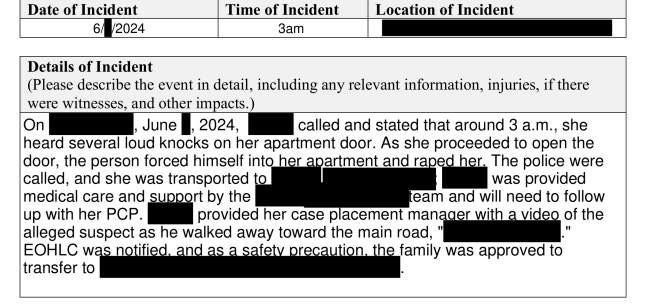


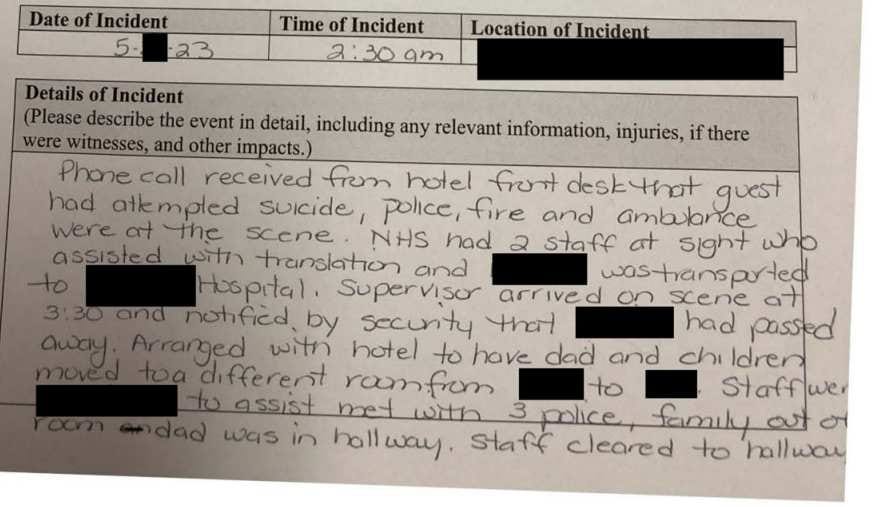
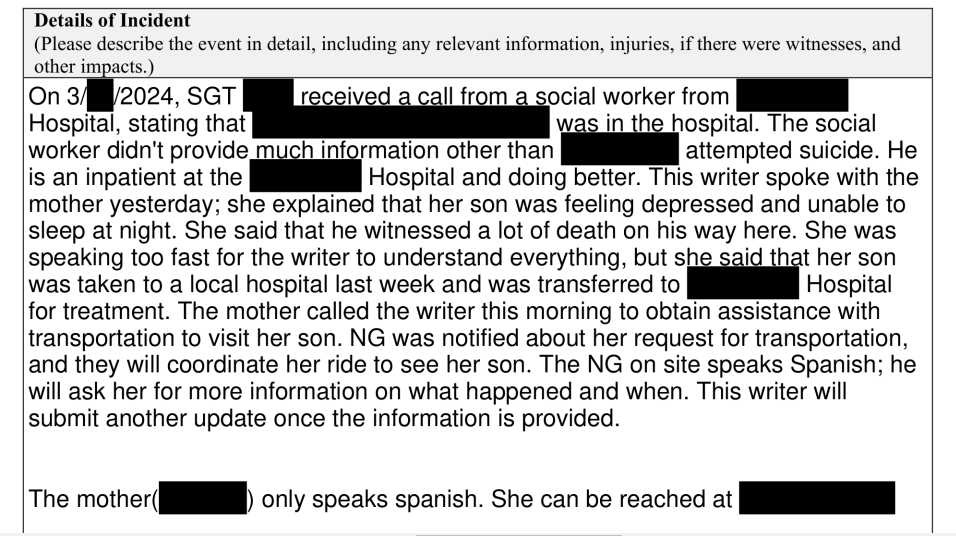

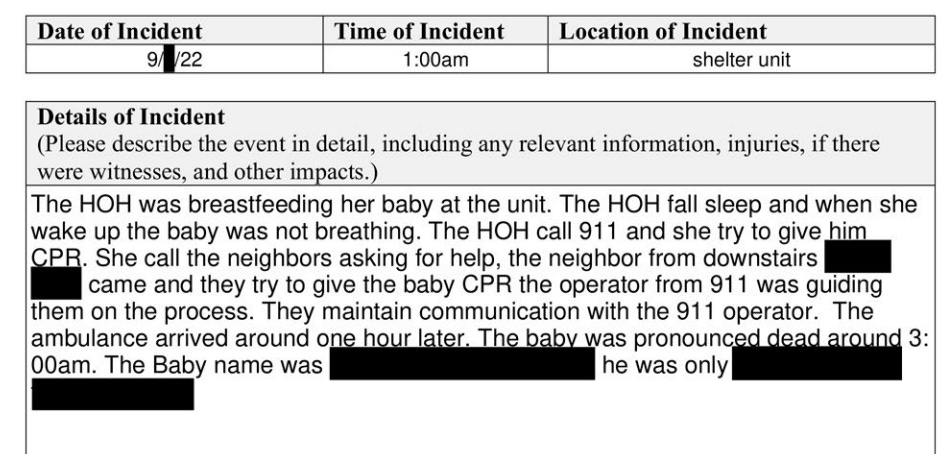
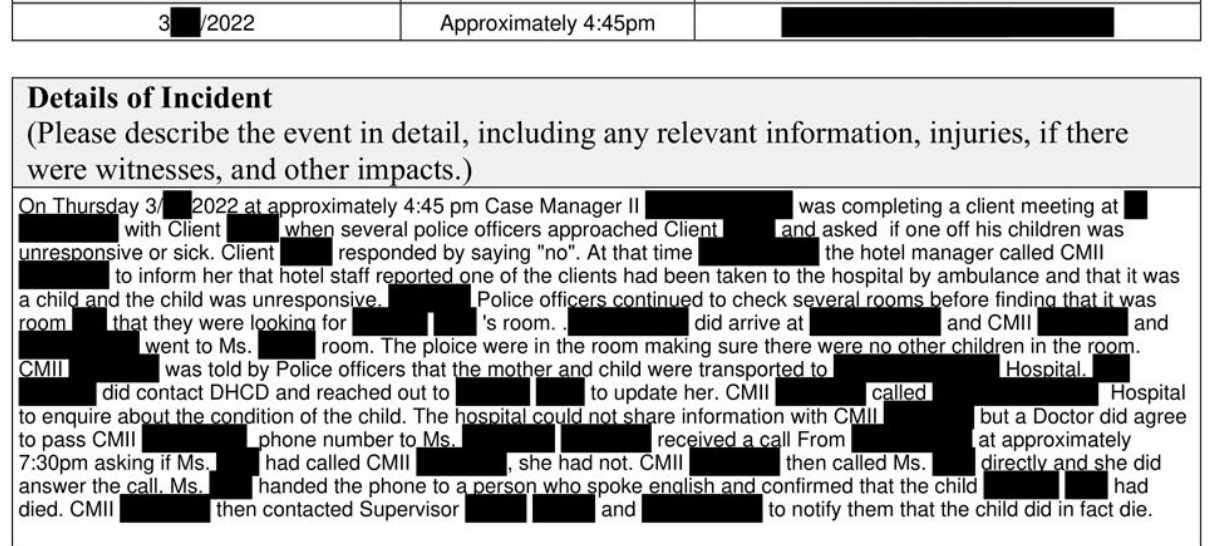
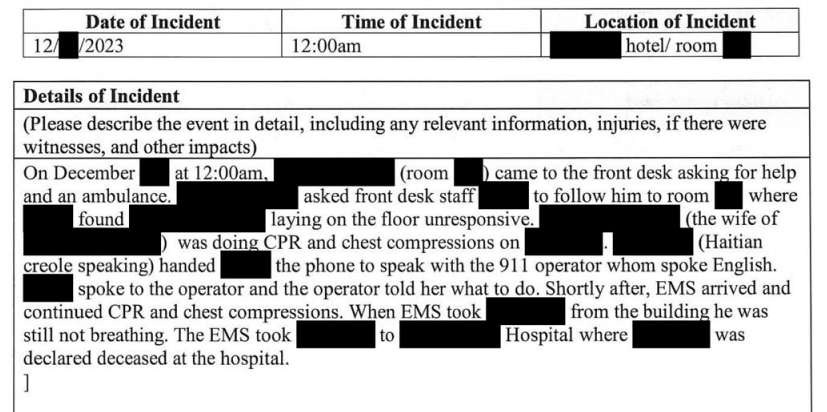


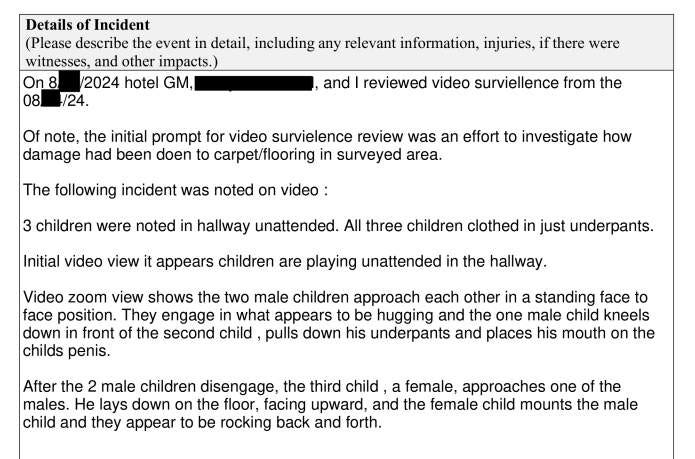

Jessica, thank you for your diligence in reporting on a disturbing situation that deserves scrutiny.
Jessica, thank you for reporting this very unfortunate situation.
This is a good example of how Government intervention, no matter how well intentioned, can go bad.
Placing these immigrants in a motel is a recipe for disaster. As the saying goes, “Idle hands do the Devil’s work.” I honestly believe that if the immigrants were allowed to join the community of immigrants from where they came from, they would have found a place to live, and work to support themselves. Just like every other immigrant, legal or not, that has entered this country for the past four hundred plus years!
Unfortunately, Governor DeSantis interrupted the natural flow of immigrants crossing the Southern border. Why? A political stunt that did nothing for his Presidential bid.
I think the Attorney General should sue Florida to pay for the cost of taking in the immigrants that he forced upon the State of Massachusetts.
Again, Jessica thank you for bringing this to light.